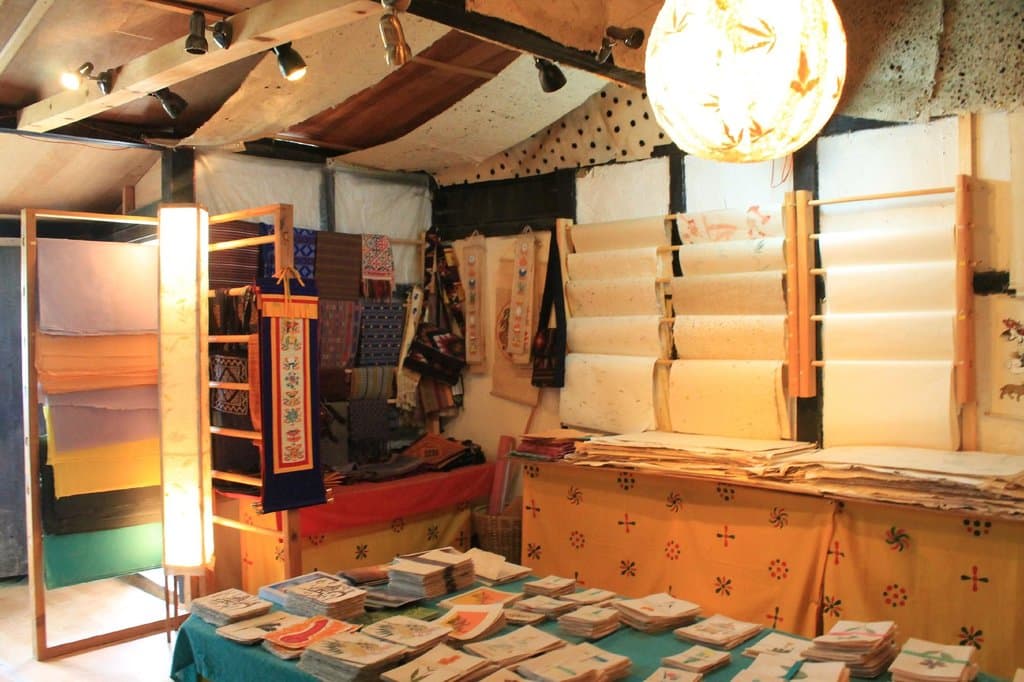
Jungshi Handmade Paper Factory Thimphu
Witness the ancient art of Deh-sho paper making from Daphne bark. A cultural immersion into Bhutan's traditional craftsmanship and sustainable practic...
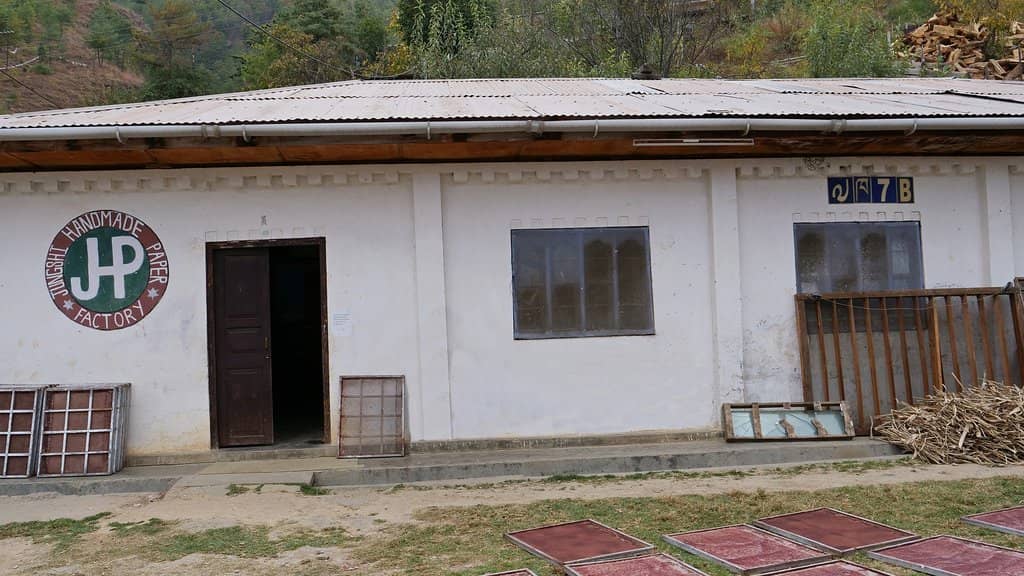
Highlights
Must-see attractions
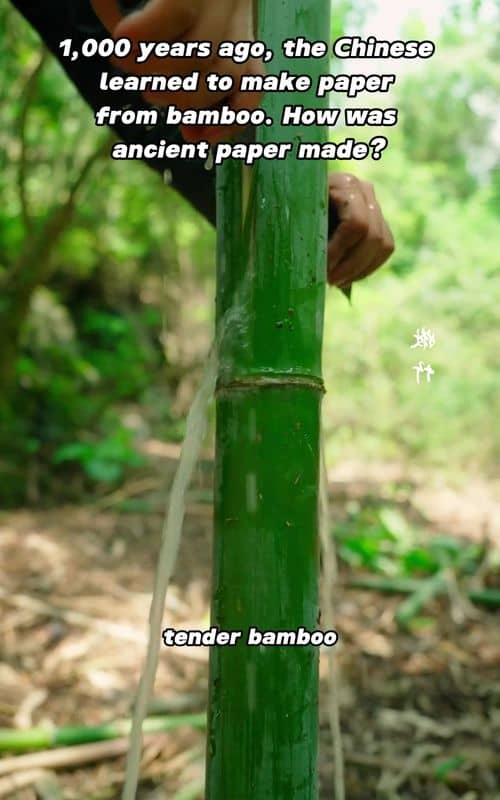
Social
From TikTok & Reddit
Best Time
Fewer crowds, better observation

Jungshi Handmade Paper Factory Thimphu
Best Time
Fewer crowds, better observation

Highlights
Must-see attractions
Witness the ancient art of Deh-sho paper making from Daphne bark. A cultural immersion into Bhutan's traditional craftsmanship and sustainable practices.
"A humbling and enlightening experience, gaining a newfound appreciation for the artistry and heritage behind every piece of paper."
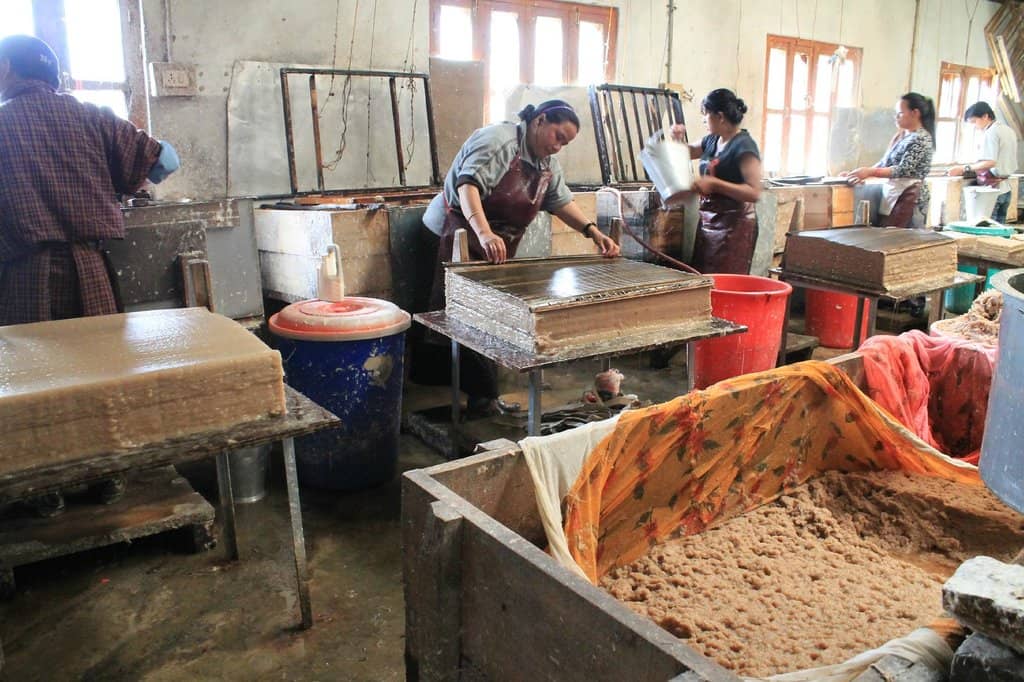
Observe the Full Process
Take your time to watch every step, from bark preparation to the final drying. It's a fascinating insight into traditional craftsmanship.
Support Local Artisans
Consider purchasing items from the gift shop; it's a great way to support the continuation of this unique Bhutanese craft.
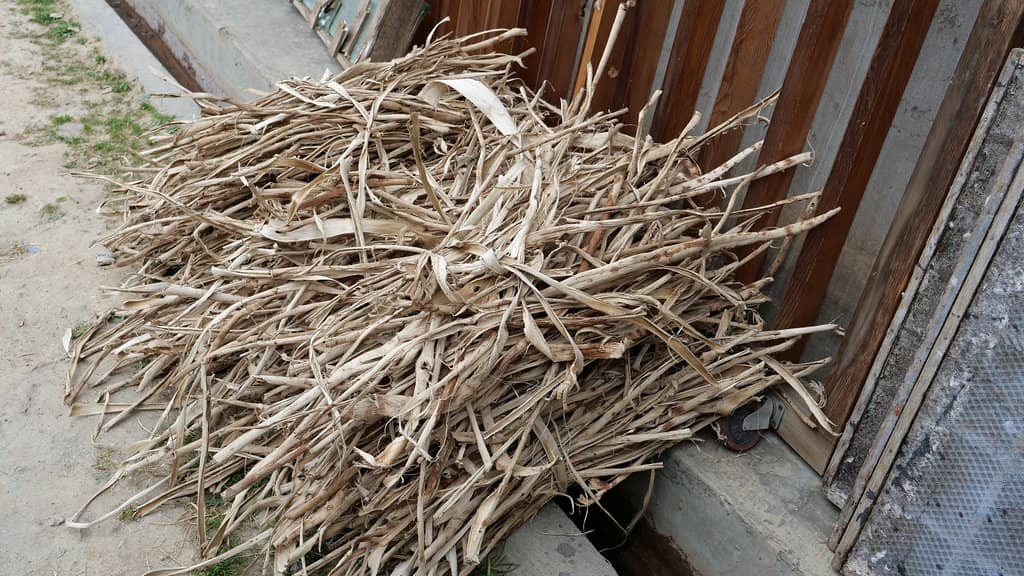
Highlights
Discover the most iconic attractions and experiences

The Deh-sho Papermaking Process
Factory floor
Witness the ancient art of transforming Daphne and Dekap tree bark into exquisite handmade paper. A truly mesmerizing and educational experience.

Daphne Tree Display
Outside the factory
See the Daphne tree up close, the primary raw material for Bhutan's unique Deh-sho paper. Understand the natural source of this traditional craft.
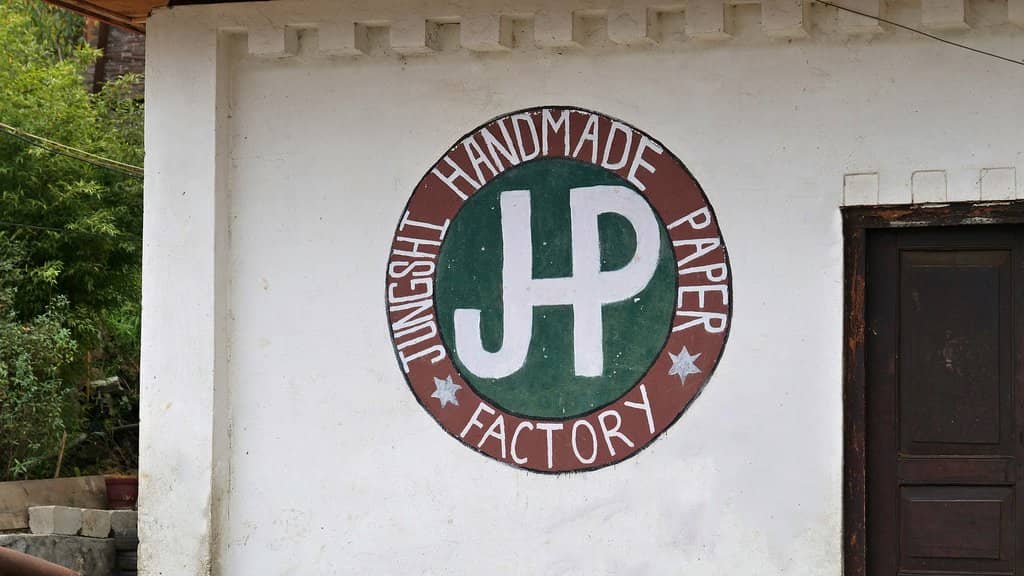
Artisan Gift Shop
Factory shop
Browse and purchase beautiful notebooks, paintings, and other handicrafts made from the factory's exquisite handmade paper.
Plans like a pro.
Thinks like you
Planning Your Visit
Witness Ancient Craftsmanship
Timing Your Visit
Best Times
Insider Tips
from TikTok, Instagram & Reddit
Observe the Full Process
Take your time to watch every step, from bark preparation to the final drying. It's a fascinating insight into traditional craftsmanship.
Support Local Artisans
Consider purchasing items from the gift shop; it's a great way to support the continuation of this unique Bhutanese craft.
Ask Questions
The staff are usually happy to explain the process, offering a deeper understanding of this ancient art form.
Appreciate the Artistry
Each sheet of paper is a testament to patience and skill. Reflect on the cultural significance and mindful creation.
Tips
from all over the internet
Observe the Full Process
Take your time to watch every step, from bark preparation to the final drying. It's a fascinating insight into traditional craftsmanship.
Support Local Artisans
Consider purchasing items from the gift shop; it's a great way to support the continuation of this unique Bhutanese craft.
Ask Questions
The staff are usually happy to explain the process, offering a deeper understanding of this ancient art form.
Appreciate the Artistry
Each sheet of paper is a testament to patience and skill. Reflect on the cultural significance and mindful creation.
What Travellers Say
Reviews Summary
Visitors consistently praise the Jungshi Handmade Paper Factory for its authentic and mesmerizing demonstration of traditional Bhutanese papermaking. The craftsmanship, the use of natural materials, and the opportunity to purchase unique handmade items are highly appreciated. Some visitors note that it's a brief but worthwhile stop, offering a valuable cultural insight.
"I feel deeply honored to have had the privilege of witnessing such a unique and extraordinary paper-making process. The craftsmanship and dedication that go into creating each sheet of paper are truly remarkable. It’s not just a process—it’s an art form, deeply rooted in Bhutanese culture and tradition. Watching the skilled artisans transform raw materials into beautiful, handmade paper was a humbling experience. Their attention to detail, patience, and respect for the craft reflect the values of Bhutan itself: mindfulness, sustainability, and a deep connection to nature. This experience has given me a newfound appreciation for the artistry and heritage behind every piece of paper, and I feel incredibly grateful to have been a part of it, even if just as an observer."
Kay Tse
"A very interesting place to visit while in Bhutan. This factory as the name suggests produces paper from the Daphne tree and you will learn and get to see the whole paper making process when you visit this factory. For those who have never seen the Daphne tree, it is planted right outside the factory in pots for the visitors to see and then you will get the see the whole process of bark drying, cleaning, pulping etc in this factory and these papers are all handmade and so beautifully done. There is also a shop within the factory that sells note pads, paintings etc made with these handmade papers and also sells other handloom and handicraft items. The visit will be a very enlightening one"
Amenla Lcr
"Jungshi means 'Natural'. Paper making in Bhutan first began as a domestic occupation and still preserved till today. The factory has a wide range of overseas markets, like USA, Japan, Europe, India and Nepal. The raw materials used for paper making are the barks from Daphne Papyracea tree. Visitors get to see the process of paper making, paper products of various sizes and colours, like photo album, journals, greeting cards,envelopes, writing paper, wrapping paper handmade paper bags, gift sets"
GAN LAY YONG
What People Like
What People Dislike
Frequently Asked Questions
🚇 🗺️ Getting There
The Jungshi Handmade Paper Factory is conveniently located about 1 km from Thimphu City, often described as being opposite the Centenary Farmer's Market. You can easily reach it by a short taxi ride or a pleasant walk if you're staying nearby.
Yes, taxis are readily available in Thimphu and can take you directly to the factory. It's a common tourist stop, so drivers are familiar with the location.
If you're staying in or near the city center, a walk to the factory is feasible and can be quite enjoyable, offering a chance to see more of the local surroundings.
🎫 🎫 Tickets & Entry
Typically, there is no admission fee to enter the factory and observe the papermaking process. It's generally a free attraction for visitors to witness the craft.
The factory is usually open daily, but it's always a good idea to check for any specific holiday closures or seasonal changes. Visiting during daylight hours ensures you can see the process clearly.
The artisans are generally working throughout the day, so most of the operational hours will offer a chance to see the process. Weekday mornings might offer a less crowded experience.
📸 📸 Photography & Videography
Photography and videography are generally permitted to capture the unique papermaking process. However, always be respectful of the artisans and avoid intrusive flash photography.
While generally allowed, it's courteous to ask for permission before taking close-up shots of individuals. The focus is on appreciating the craft.
🎫 🛍️ Shopping & Souvenirs
The shop offers a variety of beautiful items made from their handmade Deh-sho paper, including notebooks, journals, greeting cards, envelopes, and even paintings. You can also find other local handicrafts.
Prices are generally considered fair for handmade, artisanal products. Purchasing here directly supports the local craftspeople and the preservation of traditional techniques.
While the shop focuses on finished products, you might be able to inquire about purchasing larger quantities of paper if needed, though this is not their primary retail focus.
🎫 🤔 Understanding the Craft
Deh-sho is the traditional Bhutanese handmade paper. It's primarily made from the inner bark of the Daphne and Dekap trees, using natural vegetable starch as a binder.
The entire process, from preparing the pulp to drying the paper, is quite labor-intensive and involves multiple steps. While a single sheet might be finished relatively quickly once the pulp is ready, the overall production is a meticulous craft.
Its uniqueness lies in the traditional methods passed down through generations, the use of local natural materials, and the resulting texture and durability. It reflects Bhutan's commitment to preserving its cultural heritage and environment.
For Different Travelers
Tailored advice for your travel style
👨👩👧 Families with Kids
Make it an interactive learning experience by encouraging kids to ask questions about the steps involved. The gift shop also provides a chance for children to pick out a small, handmade souvenir, giving them a tangible memory of their visit. It’s a refreshing alternative to typical tourist attractions, offering a genuine cultural immersion that can be both educational and fun for the whole family.
🎨 Art & Craft Enthusiasts
The factory's shop is also a treasure trove for art enthusiasts, offering unique hand-painted items on handmade paper and other artisanal products. It's an excellent opportunity to acquire authentic Bhutanese art and support the continuation of these traditional skills. The experience provides a profound appreciation for the dedication and cultural significance embedded in Bhutanese craftsmanship.
🌿 Eco-Conscious Travelers
Observing the mindful creation of paper, free from harsh chemicals, offers a powerful lesson in sustainable production. Purchasing souvenirs from the factory shop directly supports these eco-friendly practices and the artisans who uphold them. It’s a chance to engage with a craft that respects both culture and nature.
Deep Dives
In-depth insights and expert knowledge
The Art of Deh-sho Papermaking
The artisans at Jungshi employ ancient techniques, ensuring that the essence of traditional papermaking is maintained. This isn't just about creating paper; it's about honoring a cultural heritage that emphasizes mindfulness, sustainability, and a deep connection to nature. The resulting paper is not only beautiful but also durable, with a distinct texture that speaks to its handmade origins. The factory's commitment to this craft has earned it a wide range of overseas markets, including the USA, Japan, Europe, India, and Nepal, showcasing the global appreciation for Bhutanese artistry.
Visitors often describe the experience as humbling and enlightening, gaining a newfound appreciation for the artistry and heritage behind every piece of paper. The factory also features a display of the Daphne tree itself, allowing visitors to see the natural source of this remarkable material. This hands-on observation of the entire journey, from raw bark to finished product, makes the visit a truly memorable and educational experience.
Shopping for Authentic Bhutanese Crafts
In addition to paper products, the shop often carries other local handicrafts and handloom items, providing a broader glimpse into Bhutan's artisanal traditions. Visitors frequently praise the quality and beauty of the items available, noting that purchasing from the factory directly supports the local artisans and helps sustain these valuable cultural practices. The prices are generally considered reasonable for the level of craftsmanship involved, making it a worthwhile stop for anyone looking for authentic Bhutanese mementos.
Many visitors find the shopping experience to be a delightful extension of their visit, allowing them to further appreciate the skill and dedication that goes into each handmade item. It's a chance to not only acquire beautiful objects but also to contribute to the preservation of Bhutan's rich cultural heritage.


Social
from TikTok, Instagram & Reddit